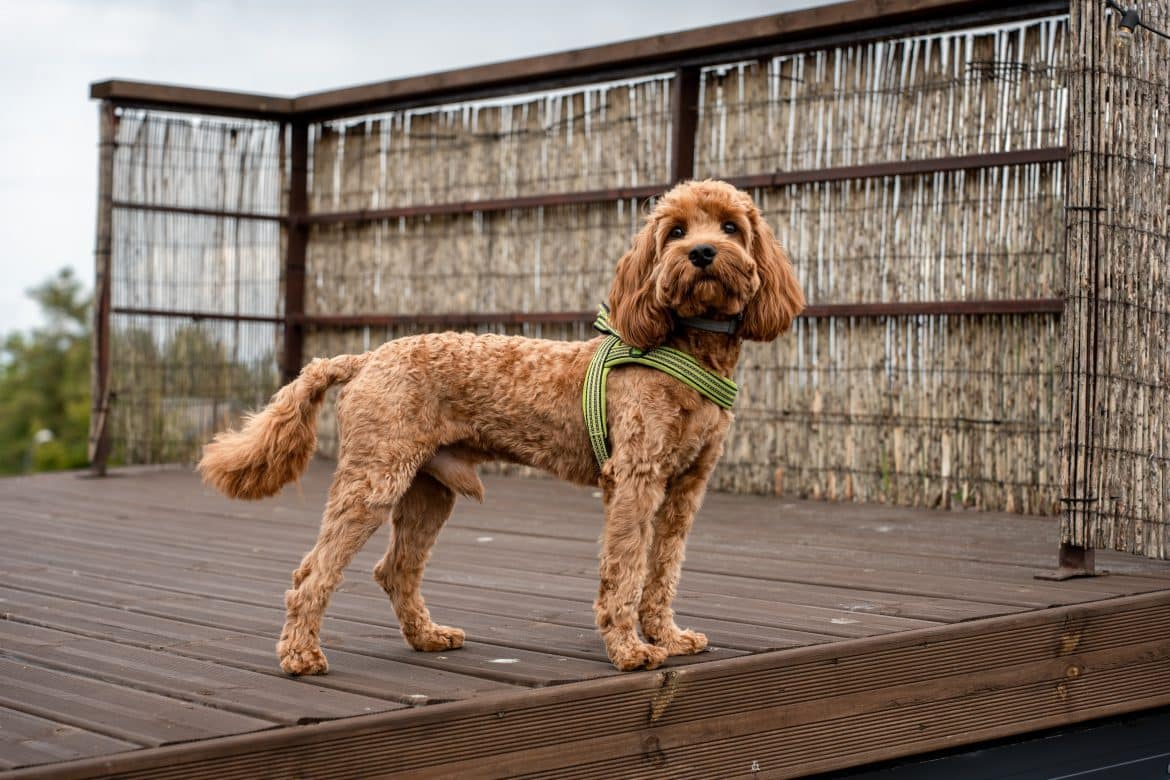Are you looking for engaging ways to provide mental and physical stimulation for your adorable furry friend? Look no further! In this article, we will explore a variety of fun and educational games that will promote healthy puppy development. From interactive toys to challenging brain games, these activities will not only keep your pup entertained but also help them learn and grow. So grab some treats and get ready to embark on an exciting journey of play and learning with your pup!
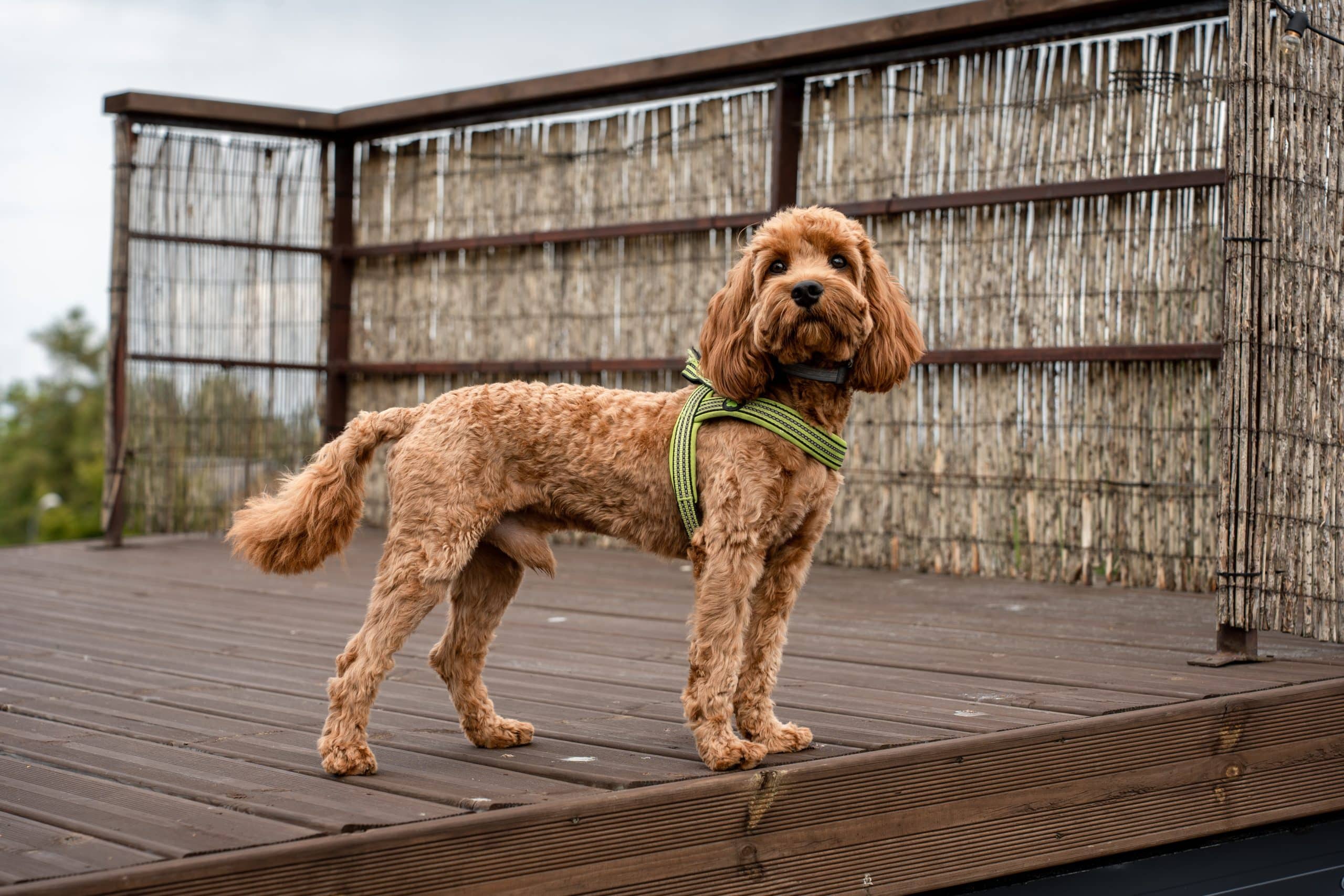
This image is property of images.unsplash.com.
Physical Development
Fetch and Retrieval
One of the best ways to promote physical development in your puppy is through the classic game of fetch. Playing fetch with your puppy not only helps them burn off excess energy but also provides them with important exercise for their growing muscles. Start by tossing a toy or ball a short distance and encourage your puppy to retrieve it. As they become more comfortable with the game, you can gradually increase the distance and complexity of the throws. Remember to praise and reward your puppy for their efforts to reinforce positive behavior.
Tug of War
Tug of war is another great game for promoting physical development in puppies. Not only does it engage their muscles, but it also helps strengthen their jaws and teeth. Use a rope or soft toy specifically designed for this game and gently tug back and forth with your puppy. Be sure to establish rules and boundaries from the beginning, such as releasing the toy when commanded. Tug of war can help teach your puppy impulse control and cooperation.
Chase and Catch
Chase and catch is a game that mimics natural hunting instincts and helps develop your puppy's coordination and speed. Start by running away from your puppy and encouraging them to chase you. Once they catch up to you, reward them with praise and a playful interaction. This game not only provides physical exercise but also strengthens the bond between you and your puppy.
Obstacle Course
Setting up a simple obstacle course in your backyard or living area can provide a fun and challenging exercise for your puppy's physical development. Use items like cones, tunnels, and low jumps to create a course that your puppy can navigate through. Encourage them to crawl under, jump over, and weave through the obstacles. This game helps improve their coordination, balance, and problem-solving skills.
Mental Stimulation
Hide and Seek
Hide and seek is an excellent game to engage your puppy's mind and enhance their problem-solving skills. Start by hiding behind furniture or in another room and call your puppy's name. When they find you, reward them with praise or a small treat. As they become more familiar with the game, you can hide in more challenging places. Encouraging your puppy to use their senses and think creatively helps stimulate their mental abilities.
Puzzle Toys
Puzzle toys are designed to challenge your puppy's problem-solving skills and keep them entertained for hours. These toys usually involve hiding treats or food inside compartments or puzzles that your puppy needs to solve in order to access the reward. As your puppy works to retrieve the treats, they engage their minds and develop patience and persistence. Puzzle toys are a great way to provide mental stimulation, especially during alone time.
Treasure Hunt
Create a mini treasure hunt for your puppy by hiding treats or toys around your home or outdoor space. Start with easy hiding spots and gradually increase the difficulty as your puppy becomes more adept at finding the treasures. Encourage them to use their sense of smell and search for the hidden items. This game taps into their natural instincts and helps sharpen their scent-tracking abilities.
Nose Work
Nose work is a game that taps into a dog's incredible sense of smell. By hiding treats or scented objects and allowing your puppy to locate them, you can provide mental stimulation and boost their olfactory abilities. Start by placing treats in different rooms or areas and let your puppy use their nose to find them. As they progress, you can introduce toys or objects with specific scents for them to track. Nose work is a fantastic way to challenge your puppy's mind and provide a rewarding and stimulating experience.
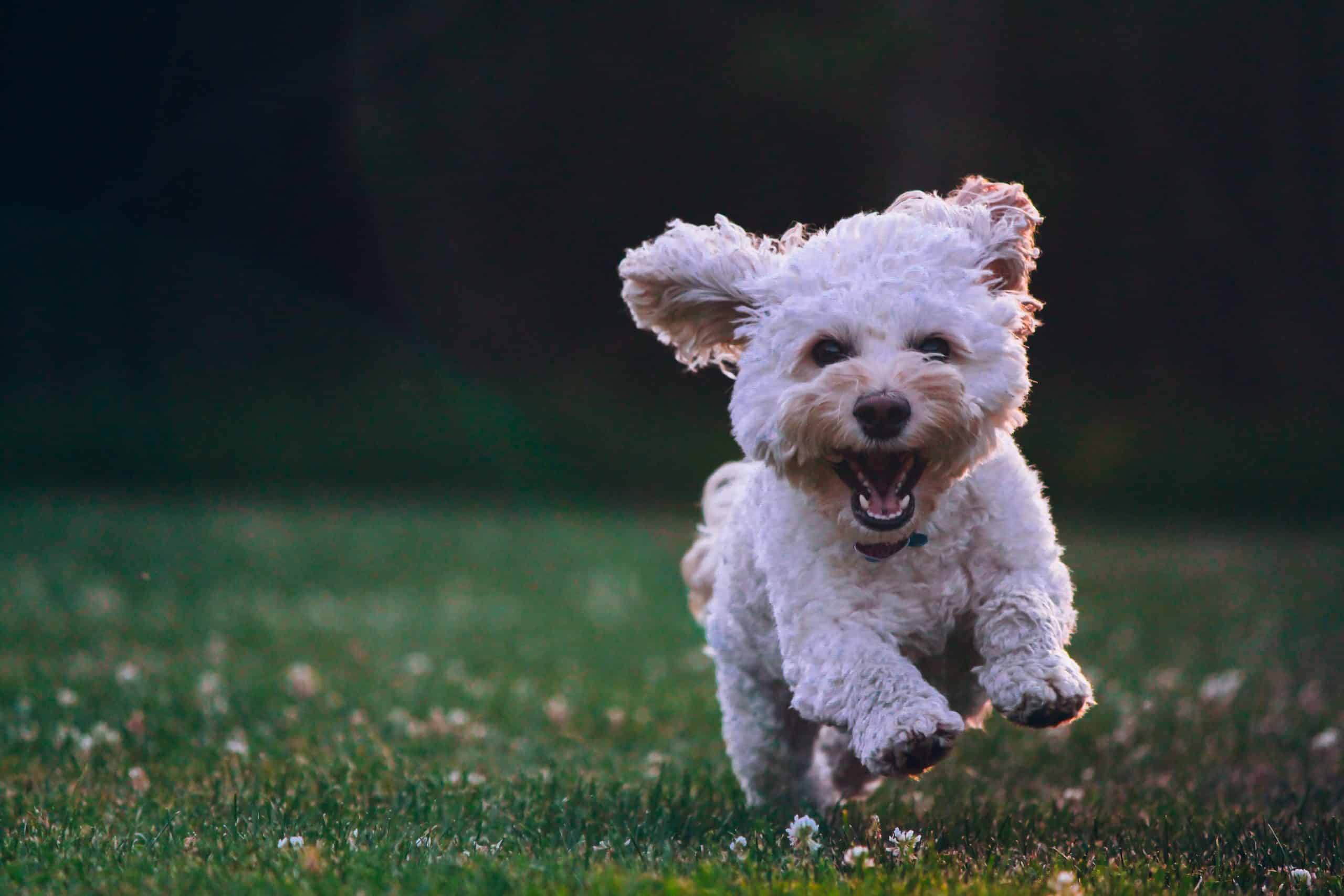
This image is property of images.unsplash.com.
Socialization
Playdates with Other Puppies
Organizing playdates with other puppies is an essential part of your puppy's social development. By providing them with opportunities to interact with their peers, they can learn important social skills such as communication, sharing, and appropriate play behavior. Supervise the playtime to ensure all interactions are positive and productive. Playdates not only allow your puppy to have fun but also help them build confidence and establish healthy relationships with other dogs.
Meeting Different People
Exposing your puppy to various people is crucial for developing their social skills. Introduce them to individuals of different ages, genders, and appearances to help them feel comfortable in different social situations. Encourage family members, friends, and neighbors to interact gently with your puppy, offering treats and positive reinforcement. This exposure helps your puppy become well-rounded and adaptable to diverse human interactions.
Interacting with Other Animals
Apart from socializing with puppies and humans, it's important for your puppy to interact with other animals as well. Whether it's meeting friendly cats, rabbits, or farm animals, these encounters help your puppy understand different species and learn appropriate behaviors around them. Always supervise these interactions and ensure the safety and well-being of both your puppy and the other animals involved. Exposing your puppy to various animals helps foster tolerance and respect in their social development.
Sensory Exploration
Squeaky Toys
Squeaky toys provide an engaging and stimulating experience for your puppy. The sound produced by these toys captures their attention and encourages them to explore and interact. Squeaky toys also help develop their natural prey instincts and provide an outlet for excess energy. Choose toys that are appropriate for your puppy's size and supervise them during playtime to prevent any swallowing hazards.
Texture Games
Introducing your puppy to different textures can help enhance their sensory exploration. Use textiles with various textures like soft, rough, furry, or bumpy surfaces, and allow your puppy to explore and touch them. This exposure stimulates their sense of touch and helps them become familiar with different sensations. Ensure the materials used are safe for your puppy and free from any hazards.
Sound Experiments
Engage your puppy's sense of hearing by exposing them to different sounds. You can create a playful sound session by introducing them to everyday noises such as doorbells, ringing phones, or the clattering of pots and pans. Gradually introduce louder or unfamiliar sounds like fireworks or thunderstorms, ensuring the volume is comfortable for your puppy. This exposure helps your puppy become accustomed to different sounds and reduces the likelihood of fear or anxiety in the future.
Taste Testing
Puppies use their sense of taste as a way to explore and learn about the world around them. Introduce your puppy to different tastes and textures by offering a variety of safe and healthy treats. Allow them to sample different flavors such as sweet, savory, and even bitter tastes. This taste testing experience helps develop their palate and encourages them to be more open to new foods throughout their lives.
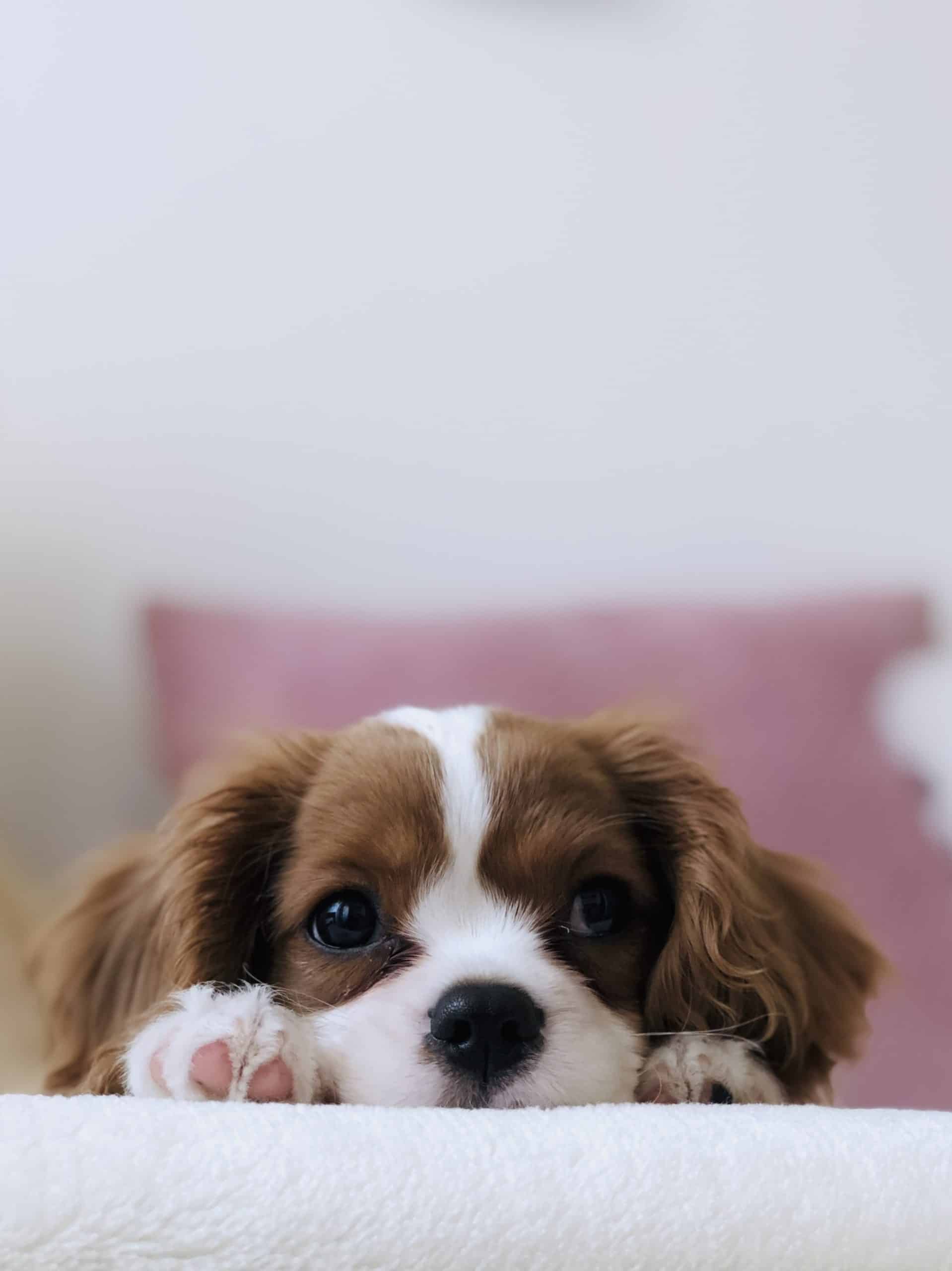
This image is property of images.unsplash.com.
Basic Training
Sit and Stay
Teaching your puppy basic commands such as "sit" and "stay" is an essential part of their training and development. These commands help establish boundaries and ensure your puppy's safety in various situations. Start by using treats as positive reinforcement and encouraging your puppy to sit. Gradually increase the duration of the sit and introduce the "stay" command. Consistency and positive reinforcement are key to successful training.
Lie Down
The "lie down" command is another crucial command that can be taught to your puppy. It promotes impulse control and encourages calm behavior. Begin by commanding your puppy to sit, then gently guide them into a lying down position while using a verbal cue. Reward them with treats and praise when they successfully perform the command. Practice this command regularly to reinforce the behavior and make it a reliable part of your puppy's training.
Come When Called
The "come when called" command, also known as recall, is vital for your puppy's safety and overall obedience. Start indoors or in a secure, fenced area with minimal distractions. Call your puppy's name in an enthusiastic and inviting tone and reward them with treats or praise when they come to you. Gradually increase the distance and practice in areas with more distractions. This command ensures that your puppy will return to you even in potentially dangerous situations.
Paw Shake
Teaching your puppy to shake paws is a fun and useful trick that also strengthens the bond between you. Begin by gently touching their paw and saying the command "shake" as you do so. Reward them immediately with treats and praise when they lift their paw. Repeat this process until your puppy offers their paw on command. This trick not only adds a touch of charm but also aids in future grooming and vet visits.
Coordination and Balance
Balance Beam
A balance beam is a fantastic tool for developing your puppy's coordination and balance. Start with a low, sturdy beam and encourage your puppy to walk across it. Use treats or toys to guide them and reward their progress. Gradually increase the difficulty by using narrower or elevated beams. This exercise helps strengthen their core muscles, improves balance, and increases overall body awareness.
Jumping Hurdles
Jumping hurdles is a great activity to enhance your puppy's physical coordination and agility. Begin with low hurdles and encourage your puppy to jump over them. Use treats or toys to motivate them and reward their successful jumps. As they become more proficient, gradually increase the height and spacing of the hurdles. Ensure that the hurdles are safe and appropriate for your puppy's size and capabilities.
Climbing Stairs
Climbing stairs is a coordinated activity that helps develop your puppy's hind leg muscles and overall strength. Start with a few steps and encourage your puppy to climb up and down in a controlled manner. Use treats or toys to motivate them and reward their progress. As they become more comfortable, you can introduce taller or steeper staircases. Supervise them closely during these exercises to prevent any accidents or injuries.
Tunnel Exploration
Tunnel exploration is a fun and stimulating activity that encourages your puppy to navigate through confined spaces. Start with a short and open tunnel and guide your puppy through it using treats or toys. Reward them for their successful completion. As they become more confident, you can introduce longer or collapsible tunnels. This exercise improves your puppy's coordination, spatial awareness, and problem-solving skills.
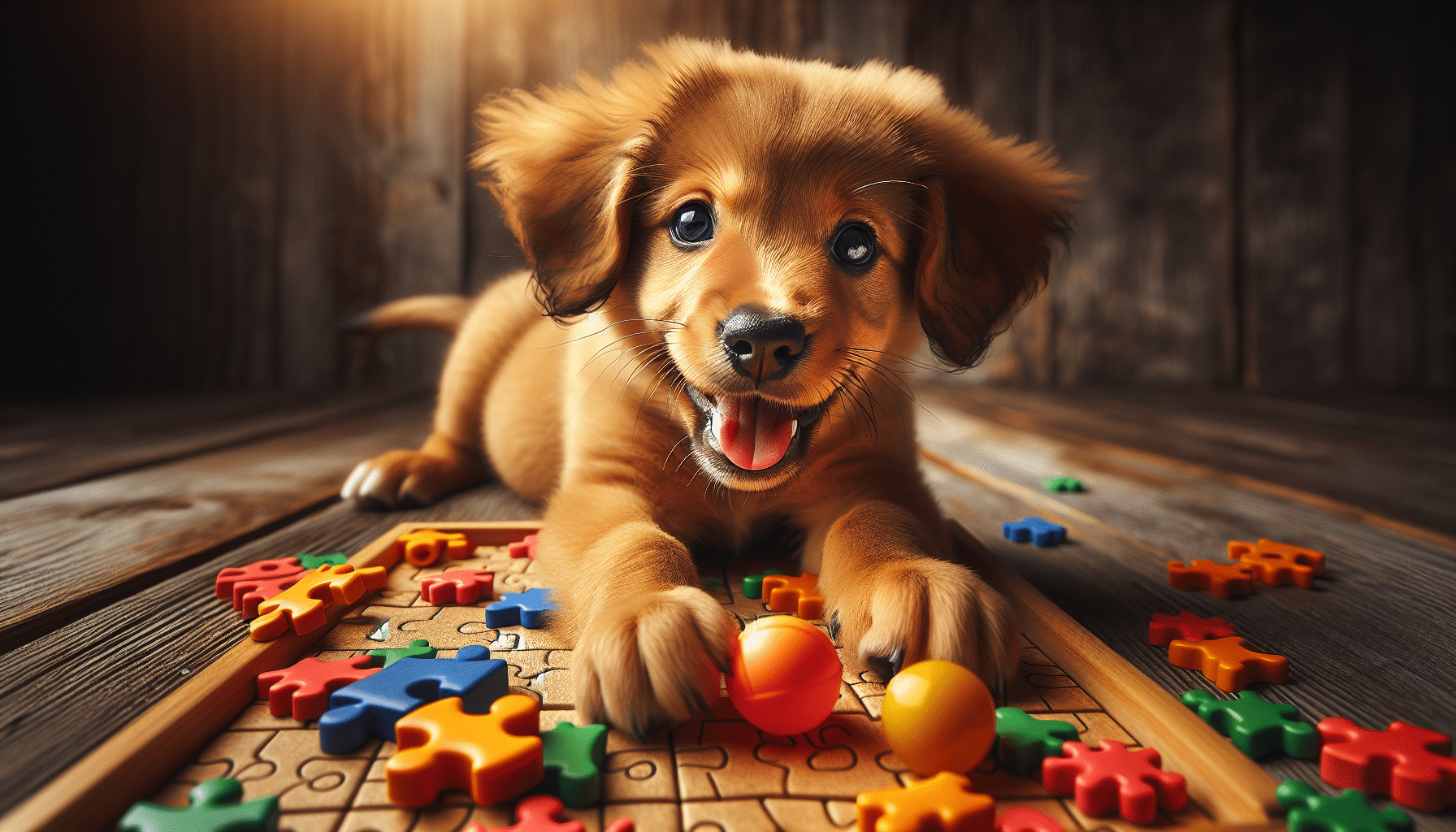
Problem-Solving Skills
Food Dispensing Toys
Food dispensing toys are an excellent way to challenge your puppy's problem-solving skills and keep them mentally stimulated. These toys are designed to release small amounts of food as your puppy plays and solves the puzzle. They encourage your puppy to think and strategize, keeping their minds engaged and providing a rewarding feeding experience.
Interactive Treat Puzzles
Interactive treat puzzles are similar to food dispensing toys but are often more intricate and complex. These puzzles require your puppy to manipulate different parts of the toy to access hidden treats. Some puzzles may involve sliding, spinning, or flipping compartments to release the reward. Introduce your puppy to these puzzles gradually and help them figure out the mechanics. These puzzles provide mental stimulation, encourage problem-solving, and prevent boredom.
Obstacle Challenges
Setting up obstacle challenges for your puppy can provide them with problem-solving opportunities. Use a combination of obstacles, such as tunnels, jumps, and weave poles, and guide your puppy through the course. Encourage them to navigate the obstacles and find the correct path. Adjust the difficulty level according to your puppy's abilities, gradually increasing the complexity as they become more skilled. This activity promotes mental and physical coordination while boosting their problem-solving skills.
Obedience and Recall
Name Recognition
Teaching your puppy to respond to their name is an important aspect of obedience training. Start by saying their name in a calm and positive manner and immediately rewarding them with treats or praise when they look at you. Repeat this process consistently, gradually introducing distractions and increasing the distance. Name recognition establishes communication and responsiveness, making training and recall easier in the future.
Leash Training
Leash training is crucial for safe and enjoyable walks with your puppy. Begin by introducing your puppy to a lightweight leash and collar or harness. Let them explore and get used to the sensation of wearing them. Start with short walks indoors or in a secure area and gradually increase the duration and distance. Use positive reinforcement, treats, and praise to reward your puppy for walking calmly on the leash. Leash training ensures your puppy's safety and allows for enjoyable outdoor adventures.
Off-Leash Recall
Training your puppy to come when called without a leash is essential for their safety and freedom. Start indoors or in a secure area with minimal distractions. Call your puppy's name enthusiastically and reward them with treats or praise when they come to you. Gradually increase the distance and practice in areas with more distractions. Use a long leash or a fenced-in area for added safety during off-leash recall training. Consistency and positive reinforcement are key to mastering this command.
Leave It
The "leave it" command is an important part of your puppy's obedience and safety training. Begin with a treat in your closed fist and let your puppy smell it. The moment your puppy shows interest, say "leave it" and wait for them to lose interest before rewarding them with a different treat or praise. Repeat this process with different objects and gradually increase the difficulty level. This command helps prevent your puppy from picking up potentially harmful items and teaches them self-control.
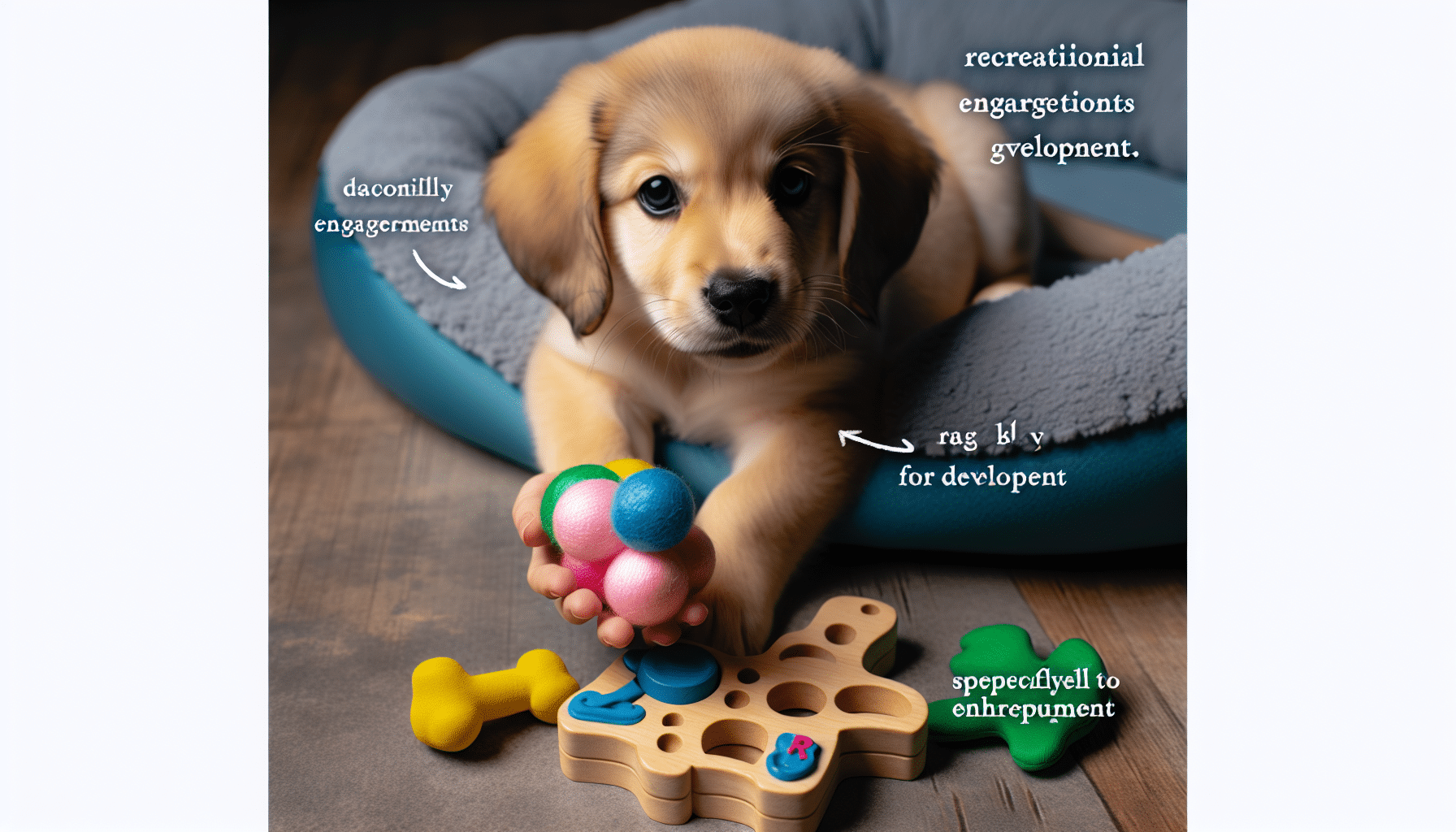
Bonding and Trust
Positive Reinforcement
Using positive reinforcement is essential for building a strong bond with your puppy. Rewarding desired behavior with treats, praise, and affection ensures that your puppy associates good behavior with positive experiences. This positive reinforcement strengthens the bond of trust between you and your puppy and paves the way for effective training. Remember to be consistent and patient in your approach to create a trusting and loving relationship.
Cuddling and Petting
Cuddling and petting your puppy is a simple yet effective way to strengthen the bond between you. Regular physical affection, such as gentle strokes and belly rubs, allows your puppy to feel comforted and loved. This interaction also promotes trust and helps your puppy feel secure and valued. Spending quality time together through cuddling and petting deepens the emotional connection between you and your furry friend.
Grooming Sessions
Grooming sessions not only help keep your puppy looking and smelling fresh but also provide an opportunity for bonding. Whether it's brushing their coat, cleaning their ears, or trimming their nails, grooming allows for regular physical contact and creates a positive association with being handled. Take your time, be gentle, and reward your puppy's calm behavior during grooming sessions. This routine strengthens the bond while keeping your puppy clean and healthy.
Massage and Touch
Massaging and touching your puppy in a gentle and calming manner can provide numerous benefits for both their physical and emotional well-being. Lightly massaging their shoulders, neck, and back can help relax their muscles and alleviate any tension. Touching their paws, ears, and mouth helps desensitize them to handling, making future vet visits and grooming sessions more manageable. Regular touch and massage sessions create a soothing and nurturing environment and deepen the bond between you and your puppy.
Enhancing Senses
Scent Games
Playing scent games with your puppy helps enhance their sense of smell and stimulates their mind. Start by hiding treats or toys in different areas of your home or outdoor space, making it gradually more challenging. Encourage your puppy to use their nose to locate the hidden items and reward them with treats or praise. You can also invest in scent training kits designed specifically for dogs, which provide a structured way to develop their scent-tracking abilities.
Visual Stimulation
Providing visual stimulation is essential for your puppy's overall mental well-being. Offer them exposure to different environments, such as walks in nature or visits to new places. Let them observe and take in the sights and sounds of their surroundings. Additionally, hanging mobiles or placing toys of various colors and shapes in their play area can engage their visual senses. Visual stimulation allows your puppy to explore and learn about the world through their sense of sight.
Sensory Walks
Sensory walks are a fantastic way to engage all of your puppy's senses while exploring their surroundings. Take them for walks in different environments, such as parks, forests, or urban areas, allowing them to experience various textures, smells, and sounds. Encourage them to explore and interact with their surroundings, promoting their sensory development and curiosity. Supervise these walks to ensure your puppy's safety and prevent them from ingesting anything harmful.
Water Play
Water play provides a refreshing and stimulating experience for your puppy. Whether it's splashing in a shallow pool, playing with sprinklers, or enjoying a gentle stream of water from a hose, water play engages their sense of touch and encourages them to explore. Remember to use lukewarm water and monitor your puppy closely to prevent any accidents or discomfort. Water play is a fun and enjoyable way to enhance their sensory development and provide relief on hot days.
Incorporating these fun games and activities into your puppy's daily routine can be both entertaining and educational. Remember to tailor the games to your puppy's age, size, and physical abilities to ensure a positive and safe experience. By focusing on their physical development, mental stimulation, socialization, sensory exploration, basic training, coordination, problem-solving skills, obedience and recall, bonding and trust, and enhancing their senses, you are setting the foundation for a happy and well-rounded dog. Enjoy the journey of puppyhood and cherish the precious moments spent playing and bonding with your furry friend!

